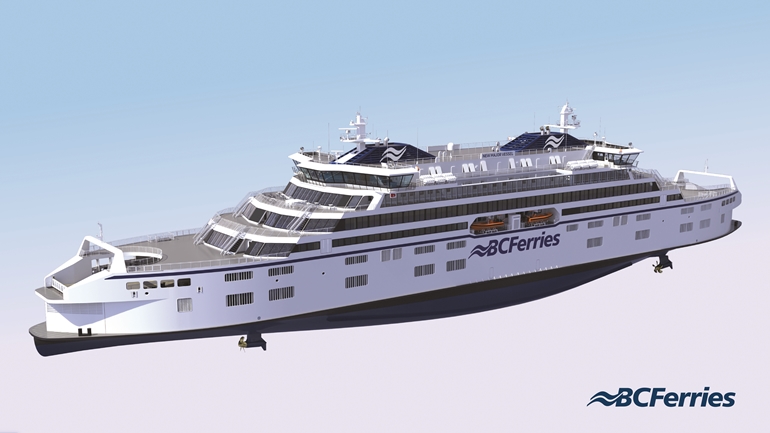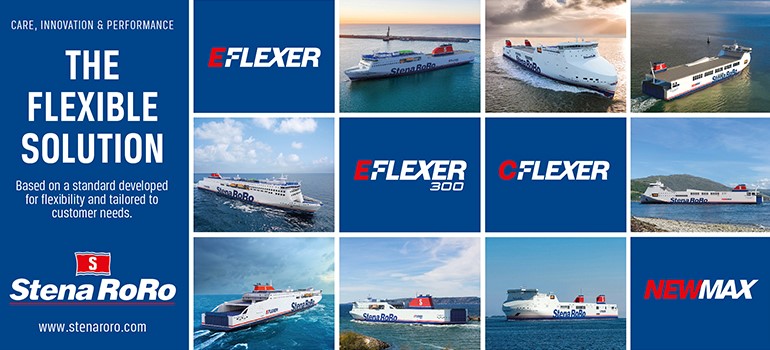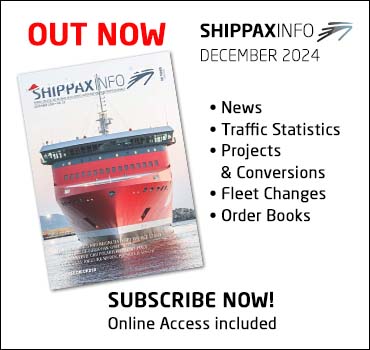
New Major Vessel concept image
New Major Vessels project reaches milestone with BC Ferries Commissioner application
FerryBC Ferries has now formally submitted its plan to build five New Major Vessels (NMVs) to the BC Ferries Commissioner. If approved, this project would be the largest capital investment in the organization’s history, increasing ferry capacity, resiliency, and reliability for BC’s coastal communities and economies.
In 2024, BC Ferries handled its highest peak season traffic ever, and with BC’s population continuing to rise, travel demands are mounting year-round. The necessary retirement of aging vessels means maintaining the status quo is no longer an option. The NMV project proposes to replace four aging vessels and add one new vessel to the fleet, adding critical space on the busiest routes between Metro Vancouver and Vancouver Island. This will reduce wait times and boost overall capacity by up to 28% for passengers and 19% for vehicles. The first of these vessels is expected to enter service in 2029, with five operational by 2031.
“BC Ferries is a marine highway, and we have a responsibility to provide reliable service to keep people and goods moving in British Columbia,” says Nicolas Jimenez, BC Ferries CEO. “We’ve heard from our customers that our busiest routes are too often fully booked during peak travel times, leaving many without access to the sailings they need. Without the addition of these vessels on our major routes, we’ll be unable to keep pace with the rising population and it’ll create a real impact on the economies of coastal communities.”
To meet the public interest, these new ships will enhance BC Ferries’ capacity and resiliency, provide reliable marine transportation for coastal economies, support residents and tourism industries, and reduce climate impacts. With global shipbuilding costs already rising over 40% in just the past four years, delaying the procurement of these vessels would lead to significantly higher costs in the future, including for customers. The project costs were already partially included in BC Ferries’ last fare application and work will continue with the Province to balance affordability with the reliable service that customers expect.
“The New Major Vessels Project will enable BC Ferries to better serve the region and province by providing greater capacity on major routes with new larger vessels and operational flexibility to address current and future demands from businesses, travellers, and residents,” shares Bridgitte Anderson, President and CEO, Greater Vancouver Board of Trade.
Without these new vessels, BC Ferries will continue to face escalating operational pressures, more frequent mechanical issues, and worsening capacity constraints. The busiest routes would exceed capacity on every sailing during the peak season within the next decade, leading to longer wait times, customers being turned away and more frequent mechanical disruptions. This would affect not only BC residents who rely on the ferry system for their daily commutes and essential travel, but also the livelihoods of those who rely on BC’s robust visitor economy. In fact, the additional capacity of the NMVs is projected to enable nearly 130,000 incremental tourists to travel through the region.
"Destination BC is actively working to inspire more travellers to discover more destinations within BC – travellers who expect the provincial transportation infrastructure to support them through these journeys,” says Richard Porges, CEO, Destination British Columbia. “For our strategy to succeed, it is critical that BC Ferries have the capacity to meet rising demand and deliver reliable, enjoyable service for all.”
BC Ferries is a critical transportation link for the delivery of essential goods to BC’s coastal communities. The British Columbia Trucking Association estimates that ferry cancellations, breakdowns, and delays can cost the commercial transport sector upwards of USD 100 million per year, every dollar of which is passed on to consumers. As demand increases, capacity constraints on the ferry system will have real, immediate, and growing consequences. The first five NMVs are expected to enable an increase in commercial truck traffic that will see over USD 240 million worth of additional cargo transported in 2035.
“Without reliable goods movement, the impacts are sharp and acute. Groceries don’t make it to shelves, and critical resources can’t reach projects, causing delays and impacting communities,” shares Dave Earle, President and CEO of BC Trucking Association. “Dependable ferry service is crucial to ensuring the flow of goods that keeps BC’s economy moving. We believe these new vessels will help build a more resilient and sustainable transportation network for everyone, particularly during peak times, breakdowns, or refit season.”
The NMVs will deliver the certainty that is necessary for BC’s supply chain, introduce new employment opportunities in BC’s marine sector, and ensure that BC Ferries has the operational resiliency it needs to continue playing its critical role in economic growth for British Columbians. Introducing the first five NMVs will support 1,350 jobs in British Columbia, earning USD 87 million in wages and generating USD 140 million for the provincial economy.
The project aims to address population growth and growing visitor demands to ensure BC Ferries can deliver the reliable service that customers expect while keeping fares as affordable as possible.
If approved in the New Year by the Commissioner, the NMV project will represent a generational milestone for BC Ferries, spurring critical fleet renewal that will deliver more reliable ferry service for BC’s coastal communities for decades to come.
Customer feedback drives New Major Vessel amenities and environmental features
The New Major Vessels (NMV) project is a complex, multi-year, capital program that proposes to deliver up to seven new vessels by the mid-2030s to service BC Ferries’ busiest routes, addressing the urgent need to replace aging vessels and address capacity constraints, prepare for future growth, and improve overall system resilience. Each vessel will be capable of carrying up to 2,100 passengers and 360 vehicles.
In response to robust feedback provided by customers and crew, the planned design of BC Ferries’ NMVs will offer significant improvements in comfort, accessibility, environmental stewardship, and operational efficiency. These vessels, if approved by the BC Ferries Commissioner, will represent a modern evolution in ferry travel when they begin to enter service in 2029, promising a more comfortable and sustainable journey while maintaining a focus on affordability.
With the formal request to the BC Ferries Commissioner to build the first five NMVs comes an exciting opportunity to share a few features of the vessels that will enhance the passenger experience, with more to come as the vessel design is finalized in 2025.
Interior pet lounges
In a first for BC Ferries, an indoor pet lounge will be located on the main passenger deck, providing a more comfortable travel experience for pets and their owners. The new design anticipates new pet amenities on the passenger deck, including stainless steel kennels, semi-enclosed seating for owners and pets, a handwashing station with hot and cold water, pet relieving areas with artificial turf, and a dog drinking fountain. The relocation of the indoor pet area to the passenger deck allows pets and pet-owners to travel in greater comfort and minimizes exposure for pets to the loud noises from vehicle alarms, ensuring a less stressful travel experience for everyone.
Improved accessibility
BC Ferries has prioritized accessibility throughout the design of these new vessels. Passenger walkways are wider, and accessible washrooms will be strategically located on both passenger decks. The vessel passageways and washrooms are designed with a large 2.1m turning radius to better accommodate larger wheelchairs of today. Additionally, three heavy-duty, marine-type elevators and multiple main stairways will make it easy for all passengers to move between decks, enhancing accessibility across the vessel.
Built for environmental sustainability
The NMVs are diesel-battery hybrids, designed to operate on bio and renewable diesel from the start, with the potential for fully electric operation in the future when supporting infrastructure becomes available. This flexibility ensures the vessels are ready to adapt as BC’s electric grid evolves, representing a futureproof and financially sustainable solution for ferry service.
Significant efficiency improvements could see 20% energy savings or more on the major routes when compared to the existing Coastal Class vessels. The new major vessels will reduce fuel consumption and overall emissions, supporting a cleaner future for British Columbia.
Reducing underwater noise
The NMV propulsion systems are being designed to reduce underwater radiated noise, which poses a known risk to the health of at-risk marine life, including the Southern Resident Killer Whales. These features align with BC Ferries’ commitment to protecting the marine ecosystems in which it operates.
What’s next for the New Major Vessel project
The design of the NMV is at the concept stage, with additional features such as new kids’ play areas and updated food service offerings still in the process of being designed that will enhance the passenger experience on the NMVs. BC Ferries will continue to finalize design elements, sharing updates as the shipbuilding contract is awarded and more features and passenger amenities are confirmed.
Each new feature reflects BC Ferries’ commitment to aligning the ferry system with the evolving needs of its passengers and the communities it serves, building a more resilient service that adapts to meet the needs of those who rely on it.
© Shippax
Dec 14 2024
Most read
Shippax Ferry Conference-Gotlandsbolaget official welcome and keynote speaker announcement! (upd. 13 Dec)
Dec 10 2024
Wallenius Marine tests groundbreaking ship design for the world's first wind-powered PCTC vessel
Dec 06 2024
Uber Boat by Thames Clippers announced the UK's first fully electric cross-river passenger ferry
Dec 07 2024






















